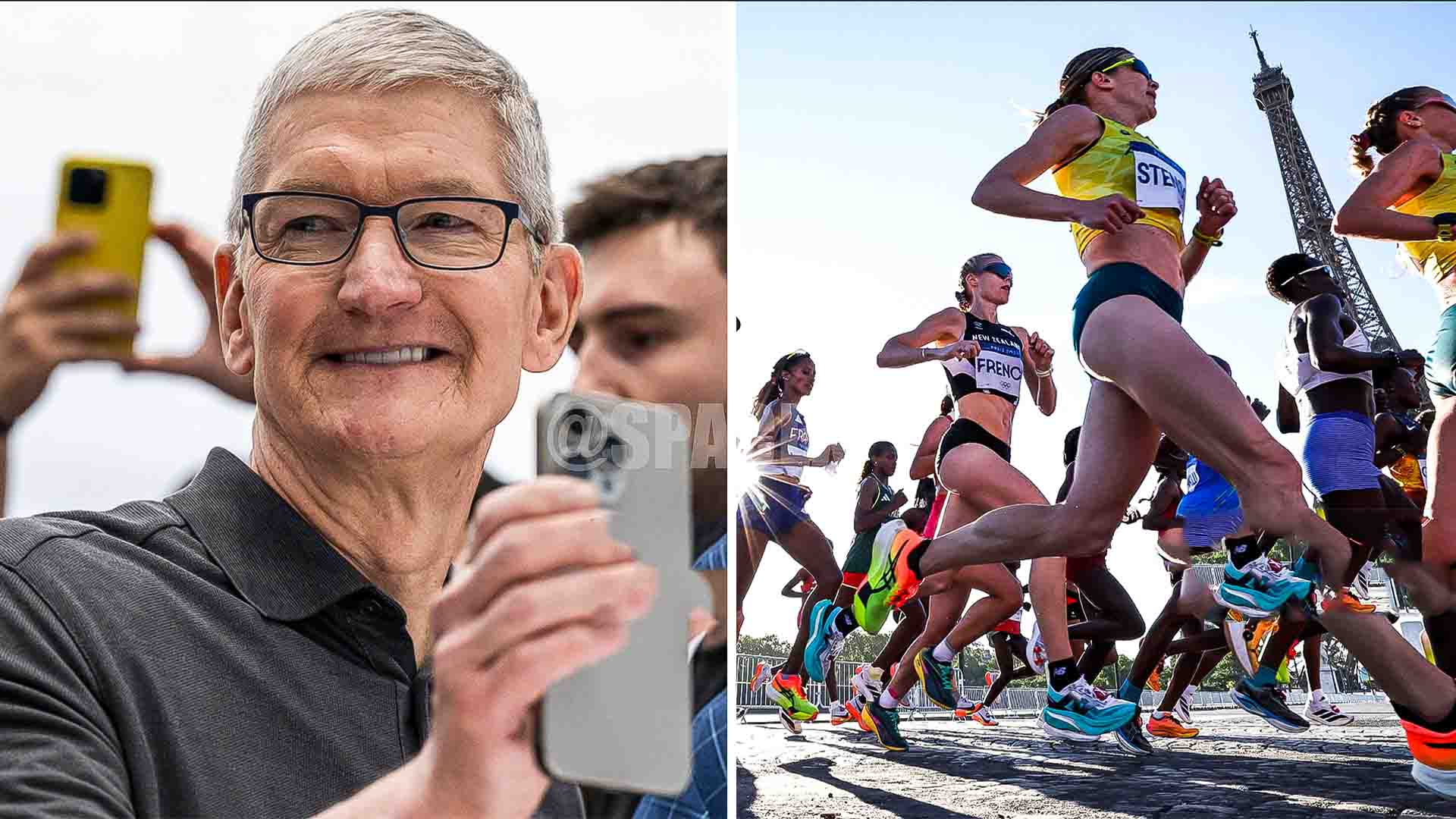Cupertino, CA – In a move that has sent shockwaves through both the tech and sports worlds, Apple Inc. announced today that it would be withdrawing from its $800 million advertising campaign for the upcoming Olympic Games. The reason? The company’s leadership is reportedly uncomfortable with what they describe as the event’s increasingly ‘woke’ direction.
Apple, known for its progressive stances on social issues and groundbreaking products that everyone buys regardless of whether they need them or not, has apparently found a limit to its tolerance.
CEO Tim Cook, in a statement that was immediately set as the ringtone on millions of iPhones, said, “While Apple has always supported diversity, inclusion, and the celebration of human achievement, we cannot in good conscience continue to sponsor an event that has become a platform for… let’s just say, a bit too much of that.”
The decision came after a series of incidents at recent international sports events that, according to sources within Apple, left the company feeling “deeply conflicted.” These included athletes taking a knee during national anthems, teams protesting climate change, and a particularly controversial moment when an entire synchronized swimming team performed in honor of endangered coral reefs.
“At first, we were excited to associate our brand with the Olympics,” said an anonymous Apple executive who only agreed to speak under the condition of anonymity due to the sensitivity of the situation—and because they were still wearing their Apple Watch. “But when the focus shifted from athletic excellence to social justice messaging, we realized this was no longer the sleek, minimalistic event we had hoped to align ourselves with.”
Rumors suggest that Apple’s marketing team was particularly alarmed by the possibility of seeing Olympic athletes using the international stage to call for racial equality or gender rights—issues that, while important, might distract viewers from the true purpose of the Games: watching elite athletes do amazing things while glued to their screens, ideally on Apple devices.
Critics have been quick to point out the irony of Apple’s withdrawal, given that the company has often positioned itself as a champion of progressive causes. Apple products have been used by activists worldwide, from tweeting protests to organizing grassroots movements. However, it appears that there is a fine line between supporting change through a glossy ad campaign and actually dealing with it on a global stage.
“It’s one thing to support LGBTQ+ rights with a rainbow-colored Apple logo during Pride month,” explained cultural commentator and self-proclaimed ‘TechnoGuru,’ Alex Keynote. “But when you start seeing athletes actually talking about these issues on the Olympic podium, well, that’s where Apple draws the line. I mean, what’s next? An iPhone that encourages you to care about the environment?”
Indeed, the decision has sparked widespread debate over the role of corporate responsibility in global events. Social media erupted with hashtags such as #WokeApple, #iQuitTheOlympics, and #BringBackThe1984Apple, referencing the company’s iconic anti-establishment ad that ironically positioned Apple as the rebel against corporate conformity.
Sources within Apple suggest that the company is now exploring other avenues for its massive advertising budget, ones that won’t force it to take a stance on anything more controversial than whether the new iPhone should have three or four cameras. Rumors include a potential partnership with a yet-to-be-announced international chess championship, where the most contentious issue might be whether the knight moves in an L-shape.
Another option reportedly being considered is a campaign around a new Apple Health feature that encourages users to “Close Your Rings, Not Your Mind,” though insiders say this idea has been shelved due to concerns it might still be perceived as too politically charged.
When asked if the decision to pull out of the Olympics would hurt Apple’s brand, Tim Cook seemed unfazed. “Apple has always been about making bold decisions,” he said. “Sometimes, that means stepping away from situations that don’t align with our values—whatever those values happen to be at the time.”
The International Olympic Committee (IOC) has remained diplomatic in its response to Apple’s decision. In a carefully worded statement, an IOC spokesperson said, “We respect Apple’s decision to focus on its core business of selling high-quality products that people can’t live without. The Olympics will continue to be a celebration of sport, unity, and yes, perhaps the occasional moment of social awareness.”
Meanwhile, other tech giants are reportedly scrambling to fill the void left by Apple. Google, for instance, is said to be considering a campaign that involves replacing the Olympic flame with a holographic version powered by AI. Not to be outdone, Meta has hinted at launching a virtual reality experience where users can experience what it’s like to be an Olympic athlete, without the inconvenient need to actually train.
As the dust settles, the implications of Apple’s withdrawal are still being analyzed. Some analysts believe the company’s decision may signal a shift in how corporations engage with global events, preferring to stay neutral rather than risk alienating any potential customers. Others argue that this could be a one-off, a reaction to the specific social dynamics of the 2024 Olympics.
For now, it seems that Apple will focus on what it does best: making sleek devices that people love, and ensuring that the only thing you have to think about when using them is whether you want your next wallpaper to be a mountain, a flower, or an abstract swirl of color.
In the end, perhaps this is the true lesson of Apple’s decision. In a world where everyone is becoming increasingly ‘woke,’ maybe the real act of rebellion is simply choosing not to wake up at all.
